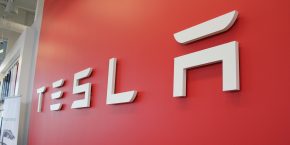
Tesla’s Powerwall, a home battery pack, is gaining in popularity with electric utilities looking to create virtual power plants by adding energy storage capacity at the homes of their ratepayers.
Now it is chosen as the battery pack to power a virtual power plant system in Lebanon, New Hampshire, but Sunrun and other solar companies say that they want to be able to compete.
Liberty Utilities, an electric utility company operating in Lebanon, has confirmed in filings with the state Public Utilities Commission (PUC) (via Valley news) that it is planning to launch a pilot program that would offer to install heavily subsidized Tesla Powerwalls to about 300 Lebanon homeowners.
The program is very similar to Green Mountain Power (GMP)’s rollout of Tesla Powerwalls in Vermont where homeowners can get Powerwalls for a discount price or monthly fee and in return, GMP can access some of the energy capacity inside the batteries when the grid needs it the most.
When batteries are installed at many homes, it adds up to a decent power capacity – like a distributed virtual power plant.
Under the program, Liberty customers in Lebanon would pay $1,000 upfront or $10 a month over 10 years for a single Powerwall, which they can use for backup power and to reduce their electricity bill under a new time-of-use metering program that will be rolled out with the Powerwall program.
Liberty expects to spend $7.3 million to install the Powerwalls and to save $700,000 a month, while its customers with Powerwalls should save about $1.8 million over 10 years in electricity bills.
They have plans to increase the program to up to 1,000 homes and PUC is expected to release a decision on the first phase of the program by June 30.
But some other energy companies are against the plan to only offer Tesla Powerwalls.
Sunrun representative Chris Rauscher said during a January hearing before the PUC:
“We believe that a competitive process would be the best route to do this better, cheaper and faster for all ratepayers, and for the individual ratepayer that has the battery storage as well,”
Surun doesn’t have its own home battery pack and it used to distribute Tesla’s Powerwall with its solar installations, but it moved to LG’s RESU battery pack after Tesla acquired SolarCity and became more of a direct competitor of Sunrun.
The RESU is limited to a capacity of up to 9.8 kWh versus the Powerwall’s 13.5 kWh energy capacity.
Based on kWh installed, the Powerwall is also significantly cheaper than the RESU, but the battery pack has nonetheless been quite popular in some markets like in Australia.
With this said, the Tesla Powerwall has been increasingly popular lately for large-scale virtual power plant projects. For example, Tesla has a massive plan to create a 50,000-home virtual power plant with Powerwalls and they recently announced that they will supply another ‘virtual power plant’ with Powerwalls at up to 1,200 homes.
FTC: We use income earning auto affiliate links. More.




Comments